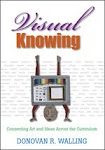
My mind was elsewhere at times during the Symphonie fantastique. You see, I have been giving thought to writing about teaching religious freedom in an era of extremism. So rather than being focused on the music with the intensity of the four harpists who sat rapt during the entire piece, even though they played only briefly, my thoughts wandered about like the free-range percussionists who roamed on and off stage, playing occasionally and at other times presumably pitching pennies against a backstage wall.
Recent controversy about the building of Cordoba House, a mosque and Islamic center, not far from the site of the former World Trade Center in New York City set me thinking about religious extremism, which so often shapes a national conversation about religion that invariably is interwoven with politics. “Freedom” of religion is never a tenet of extremism; indeed, free exercise of religion, free thought of any kind, is anathema to religious extremists of every stripe. Our domestic Christian extremists—whom some have labeled “Christianists” to distinguish those who wield Christ like a club rather than actually believe in and attempt to live the teachings of Jesus—are every bit as rabid as the Muslim extremists who destroyed the Twin Towers.
As yet, thankfully, most of our homegrown religious extremists are verbal terrorists, and most haven’t resorted to bombs. But they are equally destructive in other ways, perhaps most notably in the classroom. Limiting learning and dumbing down curricula have become extremist tools of choice that will have a profound and lasting effect. Extremists know that the real way to change the world is to pervert the teaching of the young. Inculcate extreme beliefs early and they can produce an army of children that will believe anything, such is the malleability of the unformed mind. It’s how our nation gets four-year-olds carrying anti-Islam signs they can’t yet read and how our world gets ten-year-old, gun-toting soldiers in places like Burma and Sierra Leone. Extremists don’t think of any of this as child abuse, but that’s what it is.
So Leonard Slatkin masterfully conducted the Indiana University Philharmonic, and the Symphonie fantastique soared beautifully last evening, bringing the audience to its feet for the final ovation. But I was mentally present only part of the time. I wonder what Berlioz would have thought. A French Catholic by birth in a more generally religious period than our own (he lived from 1803 to 1869), Berlioz was claimed by the faith in the Catholic Encyclopedia, though the reference admits that he did not remain faithful. The composer himself often wrote in letters that he was an atheist. He declared shortly before his death, “I believe nothing.”
Freedom from religion is implicit in our American democratic tenet of freedom of religion. Not that it applied to Berlioz, but we should also remember that atheism can be taken to extremes. But there I go again, wandering offstage away from the music. Forgive me, Hector Berlioz.




